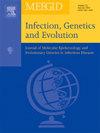Dengue virus: Etiology, epidemiology, pathobiology, and developments in diagnosis and control – A comprehensive review
IF 2.6
4区 医学
Q3 INFECTIOUS DISEASES
引用次数: 0
Abstract
Dengue flavivirus (DENV) is the virus that causes dengue, one of the most dangerous and common viral diseases in humans that are carried by mosquitoes and can lead to fatalities. Every year, there are over 400 million cases of dengue fever worldwide, and 22,000 fatalities. It has been documented in tropical and subtropical climates in over 100 nations. Unfortunately, there is no specific treatment approach, but prevention, adequate awareness, diagnosis in the early stages of viral infection and proper medical care can reduce the mortality rate. The first licensed vaccine for dengue virus (CYD Denvaxia) was quadrivalent, but it is not approved in all countries. The primary barriers to vaccine development include inadequate animal models, inadequate etiology mechanistic studies, and adverse drug events. This study provides current knowledge and a comprehensive view of the biology, production and reproduction, transmission, pathogenesis and diagnosis, epidemiology and control measures of dengue virus.

登革病毒:病因学、流行病学、病理生物学以及诊断和控制方面的发展综述。
登革热是人类最危险和最常见的病毒性疾病之一,由蚊子传播,可导致死亡。每年,全世界有4亿多登革热病例,2.2万人死亡。在100多个国家的热带和亚热带气候中都有记录。不幸的是,没有具体的治疗方法,但预防、充分的认识、在病毒感染的早期阶段进行诊断和适当的医疗护理可以降低死亡率。首个获得许可的登革热病毒疫苗(CYD Denvaxia)是四价疫苗,但并未在所有国家获得批准。疫苗开发的主要障碍包括不充分的动物模型、不充分的病因机制研究和药物不良事件。本研究对登革热病毒的生物学、产生和繁殖、传播、发病和诊断、流行病学和控制措施提供了最新的认识和全面的认识。
本文章由计算机程序翻译,如有差异,请以英文原文为准。
求助全文
约1分钟内获得全文
求助全文
来源期刊

Infection Genetics and Evolution
医学-传染病学
CiteScore
8.40
自引率
0.00%
发文量
215
审稿时长
82 days
期刊介绍:
(aka Journal of Molecular Epidemiology and Evolutionary Genetics of Infectious Diseases -- MEEGID)
Infectious diseases constitute one of the main challenges to medical science in the coming century. The impressive development of molecular megatechnologies and of bioinformatics have greatly increased our knowledge of the evolution, transmission and pathogenicity of infectious diseases. Research has shown that host susceptibility to many infectious diseases has a genetic basis. Furthermore, much is now known on the molecular epidemiology, evolution and virulence of pathogenic agents, as well as their resistance to drugs, vaccines, and antibiotics. Equally, research on the genetics of disease vectors has greatly improved our understanding of their systematics, has increased our capacity to identify target populations for control or intervention, and has provided detailed information on the mechanisms of insecticide resistance.
However, the genetics and evolutionary biology of hosts, pathogens and vectors have tended to develop as three separate fields of research. This artificial compartmentalisation is of concern due to our growing appreciation of the strong co-evolutionary interactions among hosts, pathogens and vectors.
Infection, Genetics and Evolution and its companion congress [MEEGID](http://www.meegidconference.com/) (for Molecular Epidemiology and Evolutionary Genetics of Infectious Diseases) are the main forum acting for the cross-fertilization between evolutionary science and biomedical research on infectious diseases.
Infection, Genetics and Evolution is the only journal that welcomes articles dealing with the genetics and evolutionary biology of hosts, pathogens and vectors, and coevolution processes among them in relation to infection and disease manifestation. All infectious models enter the scope of the journal, including pathogens of humans, animals and plants, either parasites, fungi, bacteria, viruses or prions. The journal welcomes articles dealing with genetics, population genetics, genomics, postgenomics, gene expression, evolutionary biology, population dynamics, mathematical modeling and bioinformatics. We also provide many author benefits, such as free PDFs, a liberal copyright policy, special discounts on Elsevier publications and much more. Please click here for more information on our author services .
 求助内容:
求助内容: 应助结果提醒方式:
应助结果提醒方式:


